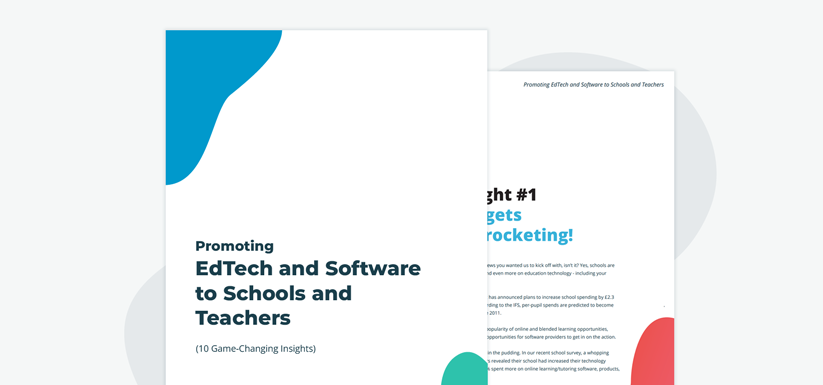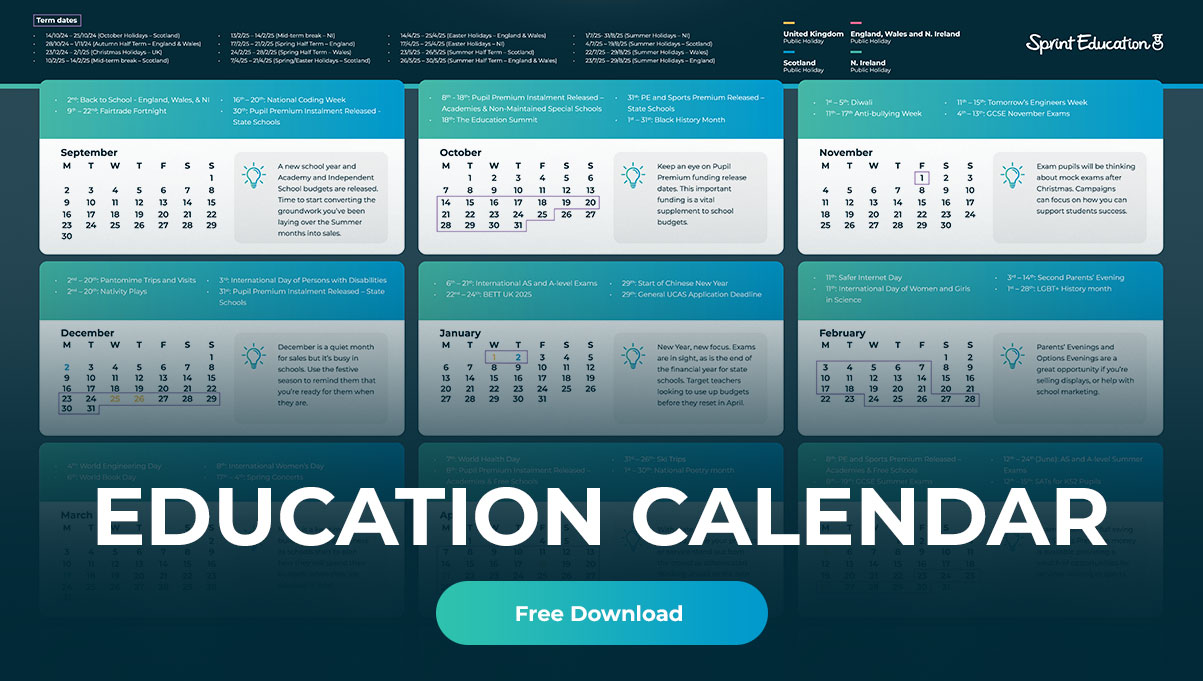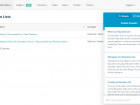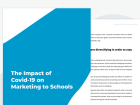What to do with your education marketing during lockdown 3.0
What to do with your education marketing during lockdown 3.0
You received more marketing and business advice last year than you could shake a stick at, but what about now? Here's an update for 2021.
You received more marketing and business advice last year than you could shake a stick at, but what about now? Here's an update for 2021.
Were we coasting before March of 2020?
Looking back, it feels like we all had our marketing on auto-pilot.
We had settled into the school year’s cyclical rhythm with its predictable budget allocations, stable term times, and typical holiday periods blissfully unaware of what was to come.
Our usual strategies were working, business was good, and life was more superficial than it is now.
Then the pandemic hit.
The aftermath left a nasty dent in consumer confidence, paralysing spending across a vast number of sectors.
While we waited for the dust to settle, we all began learning how to navigate a global pandemic between Tiger King episodes.
Righting the ship meant turning off auto-pilot, grabbing the helm, and taking command of our marketing.
What school marketing strategies did we suggest during the first lockdown that we’re still recommending during lockdown 3.0?
Here are five edu-marketing strategies we recommended then and how you should be implementing them now.
- Reassure stakeholders.
- Enagage with customers online
- Build your brand.
- Prepare for a return to business.
- Double down on emailing teachers.
Reassure stakeholders
**Then
Back in March last year, this was everyone’s first step.
For a month, our inboxes were full of emails from businesses explaining the impact of COVID on their business and their response.
It may have seemed cliché come mid-April, but it was a necessary first step in acknowledging the situation’s gravity.
More importantly, if the pandemic threatened to interrupt business as usual, it was essential to let customers and clients know how they could get in touch with questions and requests for information.
**Now
Now that we’re no longer in a state of shock and we’ve adjusted to our new normal, clients and consumers no longer need reassurance in the form of status updates and crisis communications.
Instead, your stakeholders now need reassurance that investing in your products is still worthwhile.
With schools bouncing between in-class and online learning, teachers working under stressful conditions, and everyone suffering digital fatigue from an overdose of screen time, your messages need to be authentic and respectful of their on and offline experience.
Continue to be sensitive and grateful with your messaging, and you’ll earn educators trust and favour.
Engage with teachers online
**Then
In March and April, we had to adjust the way we engaged with educators.
Many teachers who already have stressful jobs, had to make rapid changes to accommodate the lockdown by quickly adapting their teaching methods to remote learning.
Many more had to set aside their anxieties and go to work as over 70% of schools remained operational to support key workers.
Engaging with teachers meant showing empathy and gratitude by offering free resources and sharing positive news while setting aside sales-focused communications.
**Now
Now that we’re all a little more experienced at working through a pandemic, it’s become business as usual.
Scheduling and holding meetings over Zoom and Google meet has become second nature, especially for teachers teaching remotely.
There’s never been a better time to make online demos, live chat support, and webinars a part of your marketing strategy.
Webinars, in particular, have seen a massive uptake.
Create an informative and educational webinar for educators. Aim for 60 minutes in length and keep the content 80% about teachers and 20% about your solutions.
Build your brand
**Then
The freeze in spending meant short-term performance marketing was unlikely to drum up much interest last Spring. Schools were, and still are, managing their resources very carefully.
We also warned education businesses against virus-centric sales promotions that could have been in poor taste.
Instead, we suggested focusing on brand-building activities that would keep businesses visible, while allowing them to pull back on short-term marketing activity that may have generated poor returns in light of the pandemic.
Our suggestions were to improve SEO, create valuable content, offer support, and share free resources.
It was a good time for education businesses to strengthen their brand by giving more than they were taking.
**Now
We’re still recommending education businesses build their brands, but not because schools aren’t spending money.
In fact, after the initial shock of the pandemic, we slowly came to realise that teachers are checking their emails twice as often and they are very receptive to the solutions our clients were dropping into their inbox.
While short-term strategies have regained much of their efficacy, we’re still in and out of school closures. For this reason, educators aren’t always ready to move on a purchase right away.
Keeping your brand healthy and visible by sharing content, resources, and support remains a strong strategy for keeping your business at the forefront of educators’ minds when they are ready to commit to a purchase.
Prepare for a return to business
**Then
At the risk of sounding tone-deaf, we suggested some education businesses might be able to find a way to grow during the lockdown.
By taking advantage of the fact that many businesses would be relaxing their marketing efforts and falling back, some companies may have been able to step into that space earning themselves new market share.
It was a bold strategy, but education businesses that refocused their resources on adopting a new business model managed to stabilise and are now in position for when the market rebounds.
They have also successfully stolen a march on competitors that took the opposite approach, deciding to hunker down and wait out the storm, banking on a return to normalcy that never arrived.
These businesses now have some catching up to do.
**Now
Teachers and education businesses have soldiered on.
It’s been a dismal year, and we now find ourselves contending with an economic crisis brought on by the pandemic. Still, vaccinations have begun, and schools have adapted, meaning hope is on the horizon.
With multiple lockdowns and several months of insight under our belts, we also now know what to expect from this third instalment of lockdown procedures.
Not all businesses will have avoided curbing their marketing, furloughing staff, and taking a conservative stance.
However, if you can, we would urge you to get off the sidelines and back into the game sooner rather than later to avoid losing any more ground.
Double down on email marketing to teachers
**Then
Okay, so we didn’t actually make this recommendation at the outset of the pandemic.
In keeping with our advice, we approached communications with our clients sensitively, letting them know what to expect, how to get in touch, and that we would work with them to make the next few months as easy as possible.
Also in keeping with our suggestions, we set about offering free advice, churning out as many helpful guides, blogs, resources, and reports as possible to reassure our clients and help them navigate the crisis.
**Now
Once we reached May, a much more optimistic picture of email marketing to schools began to emerge.
Teachers inboxes were receiving 68% less marketing emails, leaving a massive gap for businesses that were still actively emailing educators.
Not only was their less competition for their attention, the additional time teachers were spending in front of their screens meant they were checking their inboxes twice as often.
The result was just under a 2% increase in open rates and a near 9% increase in click-to-open rates.
What about during this third lockdown?
A lot of businesses have now regained their confidence and have returned to emailing teachers with regularity. The stats show teachers are even opening and acting on emails sent out of term time.
In fact, open rates for this January are up 4.7% on last January, and click-to-opens are up 9.9%!
There’s almost nothing good about the ongoing crisis, but the increased screen time has revealed a silver lining for education marketers that want to connect with teachers right now.
It’s proving to be one of the most direct, personable, and effective methods for communicating with educators during the lockdown.
So whether you provide a service or product that schools desperately need to support remote learning, or you want to provide support and guidance to teachers in need, now is the time to do it.
Hit that send button, because teachers are paying attention.
** Talk to us about your edu-marketing
If you’re thinking about sending a campaign to schools, but you’re on the fence about timing, strategy, or content, why not speak with us?
We’re here to support you and share our insight.
Let us know what you're thinking here, and we'll call you for a quick chat.
Tags
Marketing to Schools
Similar Articles


Marketing EdTech and Software to Schools and Teachers
Learn 10 game-changing insights especially for edtech and software businesses to enhance your education marketing campaigns when emailing schools.


Expert Tips on School Sales Success Before the New Year
Video insights on standing out this November and December from our education marketing team


Expert marketing to schools support and solutions
Expert marketing to schools solutions
Email Head Teachers, Teachers, and Staff Inboxes
Email teachers and staff inboxes
Sell More to UK and Global Schools and Colleges
Sell more to schools and colleges
































